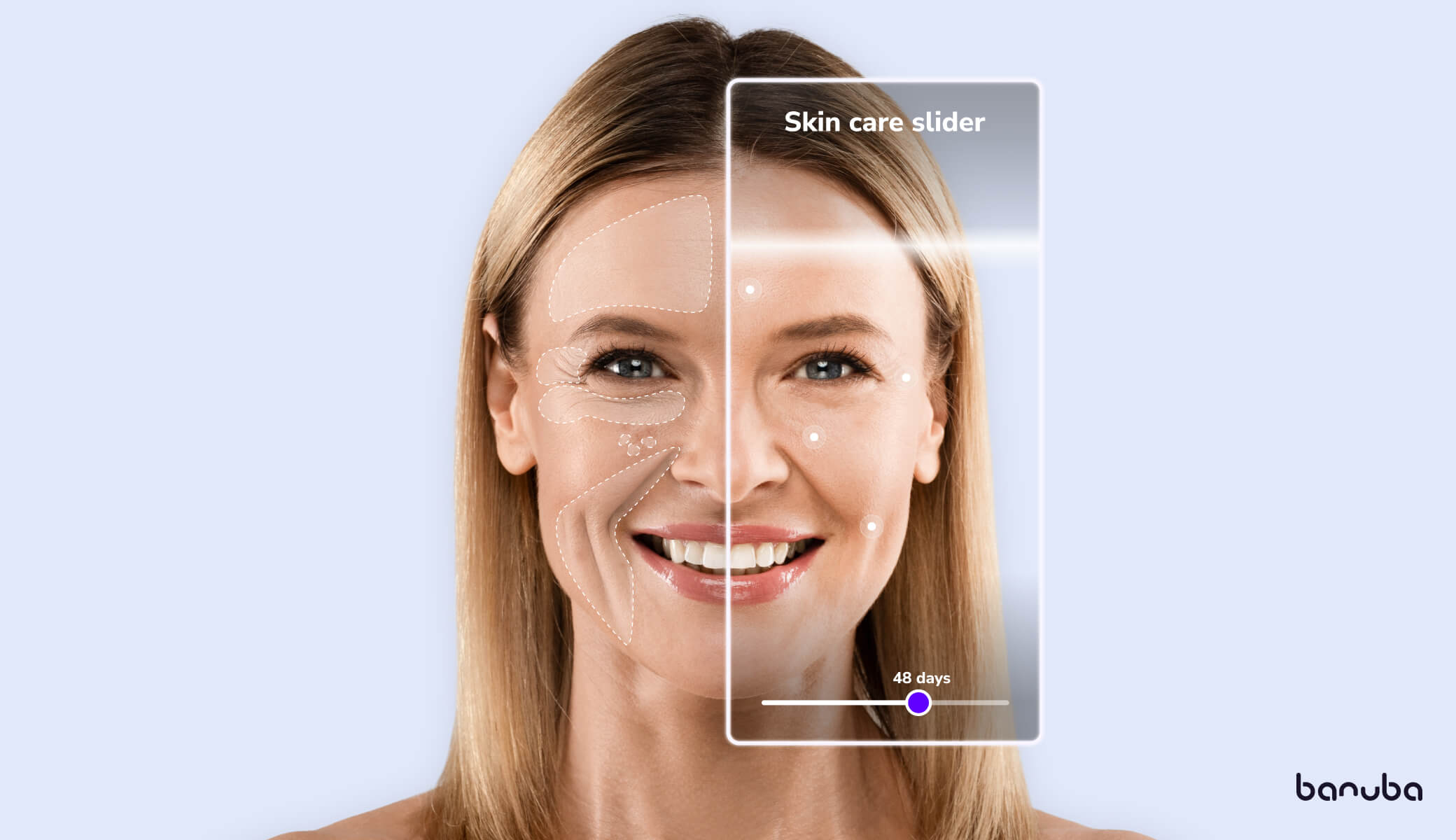
Introduction to AI in the Beauty Industry
In the realm of personal care, artificial intelligence (AI) is rapidly becoming a game-changer. Especially within the beauty industry, the rise of AI has led to innovative new approaches to skincare. As a professional at AyurDerm Technologies, I witness on a daily basis how AI is transforming product development, consumer interaction, and even the personalization aspect of skincare routines.
The Impact of AI on Beauty and Skincare
– **Personalized Product Recommendations:** AI algorithms are adept at analyzing individual skin types and concerns through user data and images. By interpreting this data, AI can recommend the most suitable skincare products and routines tailored to each user’s unique needs.
– **Virtual Skin Assessments:** Companies are implementing AI tools that allow consumers to take virtual skin assessments. These assessments provide insights regarding skin health, potential issues, and improvement strategies, all from the comfort of one’s home.
– **Enhanced Product Development:** AI helps in identifying trends and consumer needs more accurately. It guides companies in creating targeted formulations that address specific skin concerns, leading to more effective products in the market.
– **Improving Customer Engagement:** AI-driven chatbots on cosmetic websites offer instant, personalized advice and customer service. This not only enhances the shopping experience but also drives customer loyalty by providing accurate, helpful information, and recommendations.
– **Predictive Analytics:** By analyzing consumer behavior and purchasing patterns, AI enables skincare companies to predict future trends and stock demands, optimizing inventory management and reducing waste.
Navigating the Shift: Challenges and Opportunities
While the adoption of AI presents many exciting opportunities for personalized skincare, it also brings its share of challenges. The most obvious one is privacy; as customers share personal data, there is a heightened need for stringent data protection measures. Another challenge is the skepticism from consumers who may doubt the efficacy of AI recommendations compared to human expertise.
However, these challenges are accompanied by numerous opportunities:
– **Education and Trust-Building:** By educating consumers on how AI works and the safety measures in place to protect their data, brands can build trust. Providing transparent information on the algorithms and decision-making processes can help demystify AI for the general public.
– **Technological Advancement:** Continuous innovation can enhance the accuracy of AI, leading to even better personalization and results. The technology’s ability to evolve and adapt can ultimately lead to unparalleled levels of personalization in skincare.
– **Market Growth:** As acceptance and efficacy of AI-powered skincare increase, we can expect a significant expansion of the market. This offers great potential for both established companies and startups to innovate and capture consumer interest.
In my role, I continue to explore how AI not only addresses current consumer needs but also anticipates future trends, aiming to bring forth products and experiences that embody the next generation of beauty and skincare.
Personalization through AI Technology
The realm of skincare is witnessing a transformative shift with the advent of Artificial Intelligence (AI). Here, I’ll discuss how AI is changing the game by offering unprecedented levels of personalization.
Creating Customized Skincare Solutions
– **Unparalleled Personalization**: AI algorithms analyze an individual’s skin features, from type and texture to problem areas, harnessing vast data to recommend or even create custom skincare formulations.
– **Data-Driven Insights**: By collecting and processing user data – such as climate, lifestyle, and genetic factors – AI crafts unique skin care regimens that are more accurate than the traditional one-size-fits-all approach.
– **On-Demand Skin Analysis**: Innovative AI-powered tools provide instant skin analysis through smartphone cameras, giving consumers real-time advice and product recommendations.
– **Integration with Wearables**: AI systems pair with wearable devices to track skin health over time, adjusting skincare recommendations as conditions like moisture level, or exposure to pollutants change.
– **The Power of Machine Learning**: Continuous learning algorithms refine their suggestions for better results with each use, making the skincare routine dynamic and responsive.
AI and the User Experience
– **Enhanced Shopping Experience**: AI interfaces such as chatbots and virtual assistants guide consumers through purchasing decisions, offering a more interactive and personalized shopping journey.
– **Consumer Empowerment**: By educating users on their skin’s specific needs, AI demystifies skincare and empowers consumers to make informed choices.
– **Streamlined Product Development**: For skincare brands, AI accelerates product development by predicting trends and consumer preferences, ensuring that new products meet actual user demands.
– **Redefining Beauty Norms**: AI breaks down traditional beauty barriers, advocating for inclusivity by addressing diverse skincare needs across different ethnicities and age groups.
– **Consumer Privacy**: With the rise of AI, privacy concerns have heightened. Ensuring user data security is paramount and remains an ongoing challenge for AI-enabled skincare services.
The integration of AI into personalized skincare is more than a trend—it’s a burgeoning movement. It’s redefining the consumer experience, from discovery to daily regimen, and revolutionizing how we approach beauty and wellness. This synergy between technology and personal care is reshaping the industry, paving the way for futuristic and fine-tuned skin health management.
AI-Powered Skin Analysis Tools
With advancements in technology steadily infiltrating the beauty and skincare industry, I’m constantly amazed at the way AI-driven tools have started to play a critical role. These tools are not just gimmicks; they’re powerful instruments in the hands of dermatologists, estheticians, and skincare enthusiasts alike.
The Role of AI in Understanding Skin Health
I’ve noticed that AI has become a formidable ally in diagnosing and understanding skin health. Here’s how AI is assisting us:
– **Immediate Diagnosis**: I’ve used AI-powered diagnostic tools that analyze images of my skin to identify issues quickly. It’s fascinating how they can detect concerns such as acne, pigmentation, or even early signs of skin cancer with a high degree of accuracy.
– **Advanced Skin Assessment**: Professional skincare practitioners now rely on AI to get a comprehensive view of the skin. It goes beyond what is visible to the naked eye, examining underlying problems that could manifest in the future.
– **Efficient Results**: Considering the massive databases AI systems learn from, they can provide reliable results swiftly. This efficiency is a boon for both skincare experts and clients, as prompt identification is key to effective treatments.
– **Consistency in Monitoring**: AI tools have been instrumental in delivering consistent monitoring for individuals with ongoing skin concerns, ensuring that progress or the emergence of any new issue is noted and addressed.
From Analysis to Tailored Recommendations
The leap from diagnosis to personalized product recommendations is possibly the most remarkable aspect:
– **Customized Product Selection**: AI’s tailored recommendations based on my skin analysis have been spot-on. I’ve been presented with products specifically designed to address my unique skin concerns.
– **Virtual Try-On Experiences**: The Virtual Try-On tools are a game-changer in the makeup industry. It allows me to visualize how various makeup products look on me before making a purchase, which is incredibly convenient and also fun.
– **Smart Recommendations Over Time**: Another aspect that impresses me is the way AI keeps adapting its recommendations based on changes in my skin condition or even lifestyle changes.
– **Inclusive Support**: Unlike traditional approaches to skincare, which could often be biased or limited, AI supports a diverse range of skin types and tones, making it inclusive and widely applicable.
– **Secure and Private**: As someone conscious of privacy, I value how responsible brands are stepping up to ensure the security and confidentiality of personal skincare data when using AI tools.
The impact of AI on the skincare industry isn’t just about introducing new tools—it represents a paradigm shift in how personalized skincare is conceptualized and delivered. It accentuates the precision in skincare regimens and democratizes access to expert analysis and advice, all while keeping me engaged with an interactive and modern approach to beauty and wellness.
The Convergence of AI and Skincare Devices
The beauty industry is on the cusp of a major transformation, largely due to the role of AI in redefining personalized skincare. As a professional in the field, I’m continually observing how artificial intelligence stands at the forefront of this change.
Innovative AI Skincare Gadgets and Apps
– **Smart Skincare Devices**: I have seen skincare gadgets that sync with mobile apps become more prevalent. These devices analyze your skin’s condition and suggest personalized treatments, even adjusting as your skin changes with the seasons or your lifestyle.
– **Diagnostic Accuracy**: Having used several AI-powered devices myself, I’ve noticed their ability to pinpoint issues with a level of precision that is often challenging for the naked eye. From detecting premature signs of aging to suggesting preventative care, these gadgets are becoming an invaluable part of a daily skincare routine.
– **Seamless Integration**: It’s remarkable how these tools integrate with existing skincare apps I rely on, allowing not just for a comprehensive analysis, but also tracking progress over time. The fact that AI can suggest tweaks and updates to my regimen keeps it fresh and effective.
– **Personalized Product Selection**: I’ve also seen how AI is simplifying the process of selecting new products. By using algorithms to match my skin’s characteristics with countless product reviews and ingredients, I feel assured that my choices are backed by extensive, personalized data.
Linking Technology with Skincare Regimes
– **Routine Customization**: Embracing AI in my daily skincare routine has helped tailor my regimen with impressive specificity. With inputs about weather, stress levels, diet, and sleep patterns, the AI platforms I’ve utilized offer an evolving skincare routine that seemingly understands my lifestyle as well as I do.
– **Real-Time Adjustments**: On days when I’m traveling or when my sleep cycle is disrupted, it’s fascinating to see how AI detects these changes and recommends adjustments, such as increased hydration or additional sun protection.
– **Educational Aspect**: AI has been instrumental in educating me about my skin. The use of these technologies has expanded my knowledge of the science behind skincare, enabling me to make more informed decisions.
– **Collaborative Skincare**: What I find truly profound is the potential for a collaborative approach between AI technology and professionals in dermatology. AI’s ability to handle big data aids specialists in crafting precise treatments for patients, while also providing them with detailed patient histories and treatment outcomes.
As a participant in this paradigm shift, I’m witnessing how AI is personalizing skincare in ways we once deemed as futuristic. The fusion of artificial intelligence with skincare gadgets and apps is not simply enhancing individual experiences but also propelling the industry toward a more nuanced and sophisticated understanding of skin health. It’s an exciting time to experience the convergence of tech and personal care, and I’m eager to see this relationship evolve.
Machine Learning and Ingredient Customization
As an insider in the intersection of technology and skincare, I’m always thrilled by the advancements and how they are specifically shaping the future of ingredient customization. It’s as though we are entering a new era where the guesswork in skincare formulations is being eliminated, thanks to machine learning and AI.
The Science Behind AI-Generated Formulas
– **Targeted Ingredient Combinations**: My experiences have introduced me to AI systems which analyze vast databases of ingredients and their effects. These AI-driven platforms generate skincare formulas targeting my specific skin concerns, leading to a more effective skincare routine tailored just for me.
– **Big Data Analysis**: The wealth of information available to AI comes from countless studies and user feedback. It’s extraordinary how machine learning algorithms sort through this big data to predict which ingredients will work best with my unique skin genetics and lifestyle factors.
– **Hyper-Personalized Skincare**: The level of personalization possible today is unlike anything I’ve seen before. I’ve witnessed AI craft skincare products made for individual needs that can cater not only to skin type but also take into account external factors such as climate and pollution levels I face daily.
Optimizing Product Efficacy with AI
– **Continual Learning for Improvement**: One of the most profound aspects I’ve noticed is AI’s ability to learn from my skin’s reactions to certain ingredients and improve recommendations over time. This continual refining ensures that the skincare routine I follow becomes more effective with each iteration.
– **Reducing Trial and Error**: AI has dramatically reduced the trial and error that used to define my search for the perfect skincare products. Now, with algorithmic guidance, I find more hits than misses, saving both time and money.
– **Adverse Reaction Minimization**: An invaluable benefit I’ve observed is how AI helps minimize potential adverse reactions by avoiding ingredients that could trigger my skin based on my history and sensitivities—a caution that is only possible with the detailed data analysis AI provides.
In the realms of machine learning and ingredient customization, the future of skincare is becoming excitingly convenient and vastly more intelligent. The symbiotic relationship between AI and my skincare routine has not only transformed my personal approach to skin health but has also revolutionized the industry as a whole. I’m keenly watching these developments as they unfold, ready to embrace each new milestone that AI brings to the personalization of skin care.
Data-Driven Skincare and Privacy Concerns
Balancing Personalization with Data Security
– **Sensitive Data Collection**: In our pursuit for personalized beauty solutions through AI, we often overlook how much personal data is being gathered. As I navigate through different AI skincare apps, it’s clear that they collect sensitive information including facial recognition data and intimate details about lifestyle and health.
– **Data Protection Measures**: AI platforms must implement stringent data security protocols to protect users’ privacy. From my professional standpoint, it’s essential for these technologies to not only be effective but also to guarantee the confidentiality and integrity of personal data against breaches.
– **User Consent and Transparency**: I believe that users should have complete control over their data. Companies should procure explicit consent and provide clear information on how they collect, use, and share personal data. As a user, I always look for platforms that offer the option to opt-out and have robust transparency policies.
– **Regulatory Compliance**: There’s a vital need for regulation in this emerging field. My interactions suggest that companies harnessing AI for skincare should align with laws like the General Data Protection Regulation (GDPR) to ensure they’re accountable for the user data they process.
The Ethics of AI in Personal Data Handling
– **Bias and Inclusivity**: In my examination of AI-driven skincare, I have noticed the potential for bias in the algorithms, which can lead to exclusion of certain demographics. It’s important to critique these AI systems to ensure they serve a diverse user base fairly.
– **Algorithm Accountability**: Questions often arise about who is responsible when AI makes an incorrect assessment or recommendation. In my view, there must be clear guidelines holding companies accountable for the algorithm’s performance, ensuring the technology is robust and reliable.
– **Oversight and Auditing**: To foster trust, AI skincare platforms should be subject to regular oversight and auditing. As someone deeply involved with these technologies, I can attest to the importance of rigorous testing and third-party evaluations to maintain high ethical standards.
– **Educating Consumers**: Empowering users with knowledge about AI and their rights regarding data is critical. I have always advocated for companies to invest in educating their users about the implications of data sharing and the inner workings of AI recommendations.
As AI continues to redefine personalized skincare, we, as users and professionals, must engage in discussions about privacy and ethics, ensuring balanced personalization where skin health advancements do not come at the cost of our right to data security and privacy. The technology is undoubtedly transformative, but its growth must be paralleled by robust data protection measures and ethical practices.
Inclusivity and Diversity in AI Beauty Algorithms
Expanding Beauty Norms with AI
– **Broad Spectrum of Data**: To create AI that truly caters to everyone, my approach involves incorporating a wide range of data reflecting various skin types, tones, and textures. This allows the algorithms to recognize and serve a diverse clientele.
– **Personalized Product Development**: AI has the potential to tailor-make products for individual needs. I am excited about the possibility of customized formulations that adjust to a person’s unique skin concerns, moving beyond the one-size-fits-all paradigm.
– **Cultural Sensitivity**: I focus on the importance of integrating cultural understanding into AI. By considering different beauty standards and practices worldwide, AI can be more inclusive and cater to a global audience.
– **Democratization of Beauty**: Through AI, I am keen to democratize access to beauty solutions. It offers the promise of affordable, personalized skincare accessible to various socio-economic groups, thus breaking down barriers of exclusivity in the beauty industry.
Overcoming Bias in Skincare Technology
– **Algorithmic Fairness**: With my knowledge of AI, I prioritize ensuring algorithms are free from biases that can marginalize minority groups. Developing fair AI requires diverse datasets and continuous testing against biased outcomes.
– **Inclusive Testing Groups**: It’s my responsibility to advocate for testing AI systems across a broad demographic spectrum. This minimizes the risk of overlooking particular skin concerns prevalent in specific ethnic or racial groups.
– **Diverse Development Teams**: Having a diverse team behind the AI is crucial. I actively support diversity in tech teams, believing that varied perspectives lead to more inclusive algorithms and better understanding of different beauty norms.
– **Continual Learning and Adaptation**: AI systems are not static and must evolve over time. I monitor and update AI algorithms regularly to adapt to new scientific discoveries and shifts in cultural beauty perceptions.
In my interactions with AI skincare platforms, I confirm that the potential for utilizing AI to advance inclusivity and diversity in beauty is immense. By leveraging this technology thoughtfully and meticulously, it is possible to transform the way individuals interact with and benefit from personalized skincare. Ensuring the technology respects and celebrates diversity is not just about better business—it’s about fostering an inclusive society where everyone feels seen and valued in the beauty space.
Future Trends of AI in the Beauty Industry
The Rise of Virtual Beauty Assistants
– **Personalized Virtual Consultations**: As someone deeply immersed in the AI skincare industry, I foresee the adoption of AI virtual beauty assistants becoming more prevalent. I have already seen how these digital advisors can provide drop-in consultations, offering advice on skin routines and product recommendations tailored to individual needs.
– **Advanced Skin Analysis Techniques**: Predictions suggest an advancement in skin analysis technologies powered by AI. I anticipate the emergence of tools capable of not only analyzing skin photos but also interpreting data from sensors and wearable devices to provide a comprehensive skin health picture.
– **Integration with AR and VR**: My experiences suggest that the blending of augmented reality (AR) and virtual reality (VR) with AI will escalate, allowing users to virtually ‘try on’ skincare effects. This would provide not just a visual preview of potential results but also a tailored skincare plan.
Predicting the Next Wave of AI Innovations
– **Enhanced Machine Learning Algorithms**: In the next wave of AI in beauty, I anticipate that machine learning algorithms will further refine their precision. They will adopt an even more personalized approach, accounting for a person’s environment, genetics, and even emotional well-being, as these can all impact skin health.
– **smart home Skincare Devices**: The future may introduce AI-powered smart home devices that work in tandem with your skincare routine. These devices could adjust based on your skin’s daily needs, making real-time recommendations for hydration levels, UV exposure, and more.
– **Biometric Monitoring**: My insights into this field indicate that AI may start utilizing biometric data to create more advanced skincare profiles, leading to highly customized product formulations. This integration would extend beyond static data to include ongoing monitoring for changes in the skin.
– **Sustainable and Ethical AI Solutions**: It’s pivotal to me that any technology I endorse not only be innovative but sustainable and ethical as well. I predict that future AI applications in skincare will heavily focus on eco-friendly practices and ethical sourcing, combined with the efficacy of personalization.
As a contributing participant in the AI beauty trend, I recognize the necessity of being forward-thinking yet cautious. The advancements in AI hold the promise of a revolutionized beauty industry, but it’s incumbent upon us – both providers and consumers – to navigate this evolution responsibly, guarding data privacy and ensuring inclusivity within the AI paradigm. Our engagement with these emerging technologies will determine the extent to which they remain beneficial and transformative in promoting not just aesthetic beauty but also skin health integrity and overall well-being.
Conclusion: The Transformative Potential of AI in Skincare
Evaluating the Rewards and Risks of AI in Beauty
– **Enhanced Personalization**: As I delve further into the world of AI in skincare, the potential for unmatched personalization is clear. This technology fine-tunes product suggestions and routines to an individual’s unique skin needs, which can significantly improve the efficacy of skincare regimens.
– **Data-Informed Decision-Making**: The power of AI to process and analyze vast amounts of data far exceeds human capabilities. This results in more informed decisions about skincare, either by consumers themselves or by professionals advising them.
– **Accessibility and Convenience**: AI introduces accessibility on an unprecedented scale, enabling professional-grade consultations and recommendations without the need to visit a clinic. This democratization of personalized skincare advice is exciting and holds the promise of better skin health for a broader audience.
– **Efficiency and Cost-Reduction**: The accelerated efficiency in research and development through AI technologies can lead to faster product innovations and potentially reduced costs. This benefits both the consumer, with more affordable options, and the companies that can invest their resources more effectively.
– **Data Privacy Concerns**: Despite the benefits, I’m acutely aware of the concerns regarding data privacy. With the amount of personal information that AI systems need to function effectively, ensuring the security and confidentiality of this data is paramount.
– **Over-Reliance on Technology**: There’s a risk of becoming overly dependent on AI, neglecting the human touch and expertise that are sometimes needed in personal care. It’s critical to strike a balance between technological assistance and human judgment.
– **Bias and Inclusivity**: Another priority is addressing potential biases in AI algorithms, which must be meticulously trained to serve a diverse user base. In the pursuit of personalization, it’s essential that AI systems cater equally well to the full spectrum of skin types and conditions.
Envisioning the Future of Personalized Beauty with AI
– **Innovative Product Development**: Looking ahead, I foresee AI playing a pivotal role in developing new skincare products that can adjust in real-time to a user’s changing skin conditions. This could revolutionize the way we think about and use skincare products.
– **Real-Time Skin Assessment and Care**: AI could lead to the creation of mechanisms for real-time skin assessment, providing instant feedback to individuals about the state of their skin health and how they might best care for it on a daily basis.
– **Comprehensive Health Approaches**: By integrating with other health-monitoring systems, AI in skincare could contribute to a more holistic view of health- where skin care is part of an interconnected system involving diet, exercise, and mental well-being.
– **The Role of Ethical AI**: Ultimately, it’s incumbent upon us to ensure that AI serves the greater good. This includes advocating for ethical development practices which consider the environmental impact, sourcing of materials, and the societal implications of technological deployment.
Embracing AI within skincare manifests a vision where innovation meets individuality, and where each person can access the best possible care tailored precisely for them. As this technology continues to evolve, it’s my aim to contribute to a future where AI is not only smart and effective but also responsible and inclusive.
















